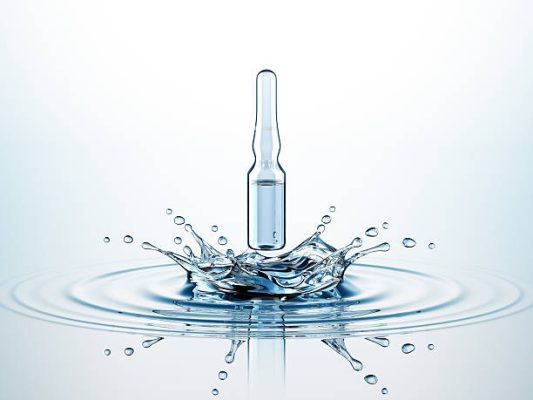Beauty / Skin Care
Hyaluronic Acid: What It Is, Benefits, Side Effects & How To Use
Hyaluronic acid is used in skin care products to improve the appearance of the skin. Hyaluronic acid is a natural lubricant that cushions joints and connective tissue. It helps to keep skin plump and smooth and can be found in many skincare products.
What is Hyaluronic Acid?
Hyaluronic acid is a naturally occurring substance in human skin that gives the skin its firmness and elasticity. In addition, hyaluronic acid binds water to itself, so when you have a lot of hyaluronic acid in your skin, it looks plump and hydrated. Hyaluronic acid occurs naturally in the body and can be found in many foods like cucumbers, eggplants, oats, rice bran, and wheat germ oil.
How Hyaluronic Acid Works on the Skin
When applied topically (on the outer surface) or injected into the skin as a filler (dermal filler), hyaluronic acid will bind water molecules to itself like a sponge so that they cannot escape again. This makes your skin look fuller and smoother with more volume and fewer wrinkles.
Is Hyaluronic acid safe?
There aren’t many studies on the safety of using hyaluronic acid topically or orally (swallowed). However, there have been no reports of severe side effects from topical use or oral consumption of this ingredient.
Hyaluronic Acid Benefits
Hyaluronic acid offers many benefits for people who want to maintain their youthful appearance:
Anti-Aging Properties: Hyaluronic acid can help slow the aging process by protecting collagen from breaking down too quickly. Collagen helps provide structure and support within your body, skin, bones, and joints. As you age, collagen production decreases, resulting in wrinkles forming on your face or sagging skin due to gravity pulling down on it.
When applied topically, hyaluronic acid works by binding water molecules from your environment and drawing them into your skin cells. They can be utilized as a part of normal cellular processes like repairing damaged tissue or replacing old cells with new ones. This helps to keep your skin looking young, healthy, even-toned, and plump!
Reducing inflammation – Hyaluronic acid is important in reducing inflammation from injuries or allergic reactions by attracting water to the area. This reduces swelling and redness while speeding up healing time.
Hyaluronic acid is naturally produced by the body to help cushion and lubricate joints, tendons and muscles. Hyaluronic acid is also found in the eyes, where it helps maintain tear production and protect against dry eye disease. In addition, hyaluronic acid may keep your skin looking smooth and young by supporting collagen production.
There are many health benefits associated with hyaluronic acid, including:
- Reducing wrinkles and fine lines
- Promoting skin elasticity
- Promoting moisture retention in the skin
- Healing wounds and burns faster
Hyaluronic Acid side effects
In general, Hyaluronic Acid is considered a very safe treatment when used appropriately by patients with normal skin types. However, there are some cases where side effects can occur. These include:
Allergic reactions – This is another common side effect of Hyaluronic Acid that occurs when people have allergic reactions to products containing hyaluronic acid. If this happens, discontinue use and seek medical attention immediately if symptoms persist.
How To Use Hyaluronic Acid
Hyaluronic acid can be used in many different ways, so let’s go over some of the most popular ways to use this powerful ingredient:
- In topical skincare products
- In serums and creams
- Face masks and masks for other parts of the body
- As a carrier for other ingredients


